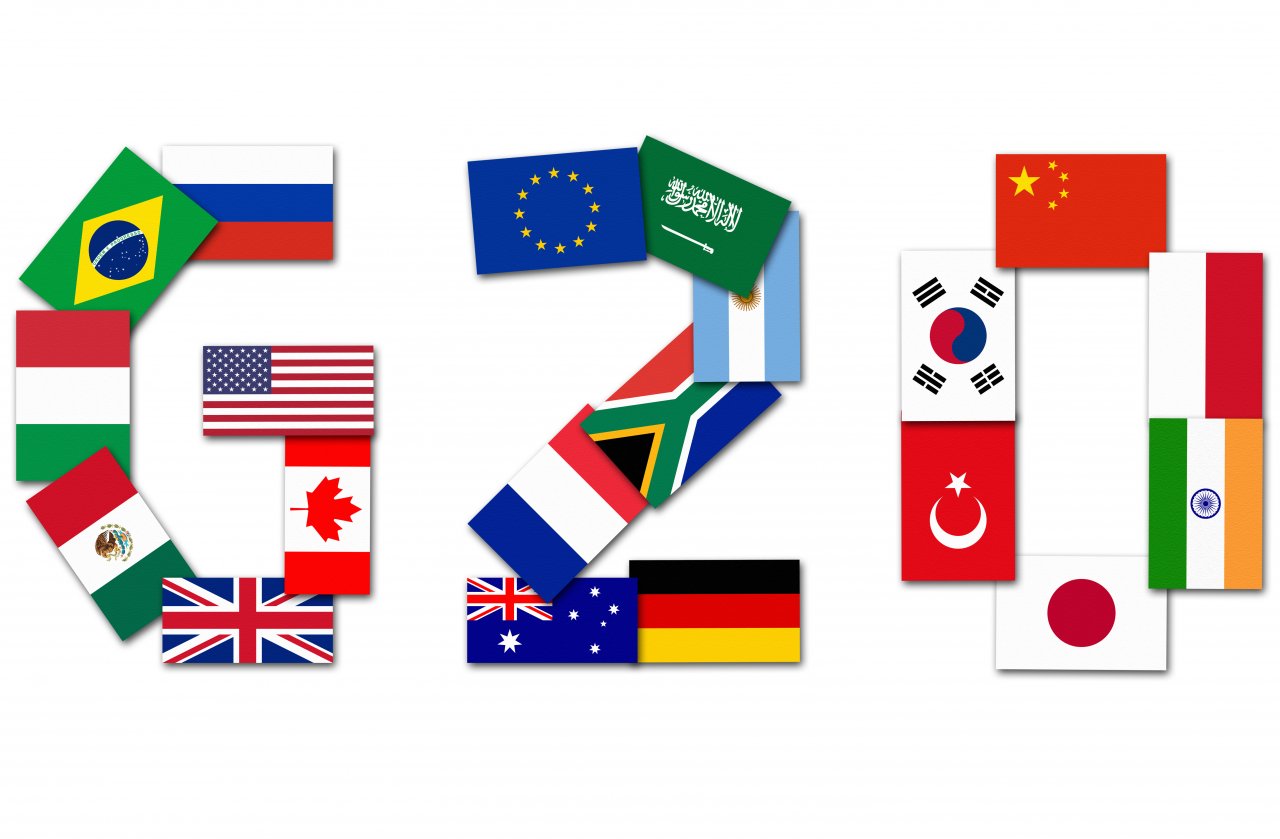G20 seeks 'further dialogue' on trade
March 21, 2018 | Expert Insights

The world’s financial leaders reaffirmed their commitment to fight protectionism and recognize the need for “further dialogue and actions” on trade. This occurred just days before US steel and aluminium tariffs are set to be enforced.
Background
The G20
The G20 was formed as an international forum for governments and central bank governors from Argentina, Australia, Brazil, Canada, China, France, Germany, India, Indonesia, Italy, Japan, Mexico, the Republic of Korea, the Russian Federation, Saudi Arabia, South Africa, Turkey, the United Kingdom, the United States, and the European Union. It was founded in 1999 and aims to discuss policies pertaining to the promotion of international financial stability and address issues surpassing the responsibilities of any one organization.
Collectively, the G20 countries account for around 85% of the gross world product (GWP), 80% of world trade (or, if excluding EU intra-trade, 75%), two-thirds of the world population, and approximately half of the world land area.
Global Trade
Global trade gives consumers and countries the opportunity to be exposed to new markets and products. Industrialization and advanced technology - including transportation, globalization, multinational corporations, and outsourcing - all have a major impact on the international trade system. Increasing international trade is crucial to the continuance of globalization.
It is no secret that the United States and China consider the other as a trade partner. However, there have been several conflicts between the two nations in the past, especially surrounding trade. In 2009, the initial US–China Strategic and Economic Dialogue was established. Every year, representatives from both countries get into dialogue on methods to improve their economic partnership. However, in the recent past, the meetings have been reported to be “tense.”
In the past, US President Donald Trump has deemed China responsible for US unemployment levels and has criticized the US trade deficit with China. China's trade surplus with the United States expanded in 2017 while total foreign trade volume maintained rapid growth.
Analysis
Finance ministers and central bankers of the G20 have been discussing the risk to global economic growth from a possible trade war caused by the US tariffs and alarming trade sanctions on China. A draft statement showed that the global financial leaders added a phrase, stressing the need for further talks on trade issues.
“International trade and investment are important engines of growth, productivity, innovation, job creation and development,” the G20 said in the latest draft communiqué. “We reaffirm the conclusions of our Leaders on trade at the Hamburg Summit and recognize the need for further dialogue and actions. We are working to strengthen contribution of trade to our economies,” the statement read.
The new message on the need for trade dialogue comes as US President Donald Trump is setting up plans to target China with tariffs over its intellectual property practices. It is believed that Trump is expected to unveil tariffs on up to US$60 billion in Chinese technology and telecoms products by Friday, the same day when a tariff of 25% on imported steel and 10% on aluminium are to apply.
The Hamburg Summit communiqué, which was signed by President Trump in July 2017, states that G20 countries would "continue to fight protectionism including all unfair trade practices." However, it also mentions that they "recognize the role of legitimate trade defense instruments" – which now poses as an ambiguity, providing the US with a way to argue its cause on the tariffs.
In the latest draft communiqué, the G20 leaders reiterated their traditional pledges to avoid competitive devaluations and targeting foreign exchange rates for export advantage. They also included some new ideas on exchange rates, in terms of stability and flexibility.
Assessment
Our assessment is that robust fundamentals, good trade policies, and a flexible international monetary system are crucial to stabilizing exchange rates, thus leading to strong and sustainable growth patterns and investment. The US and China are two of the largest economies in the world and any trade dispute between the two could have a negative impact globally. The US has also begun a trade challenge with India last week. This, along with the imposing of tariffs on billions of dollars in Chinese imports, particularly in the tech and telecommunications sector, shows intensifying trade relations will occur between the US and Asia’s two largest economies.
Read more: G20 to monitor cryptocurrencies








Comments